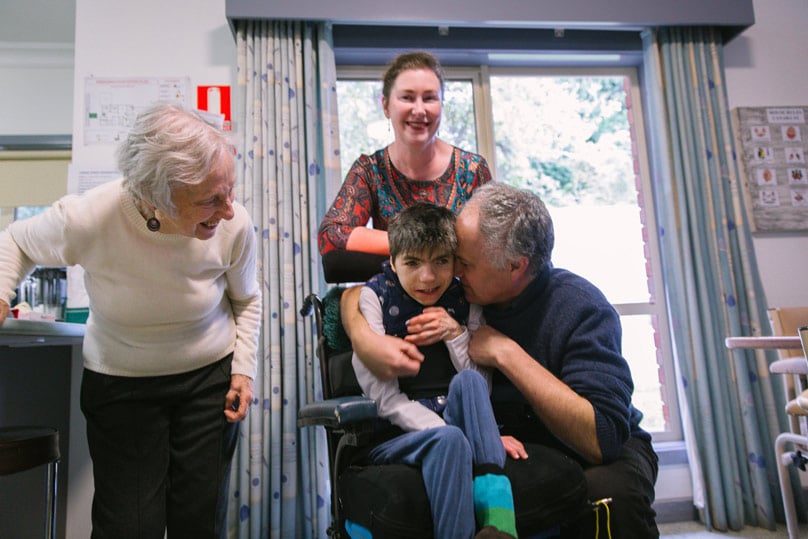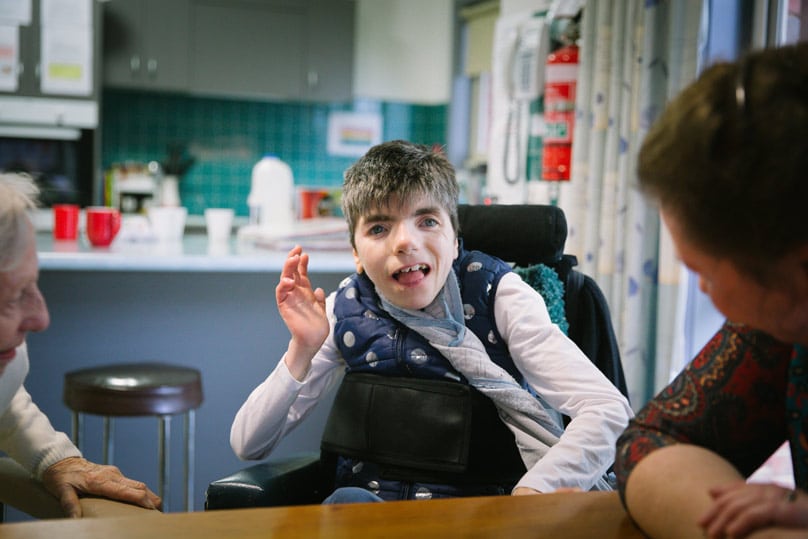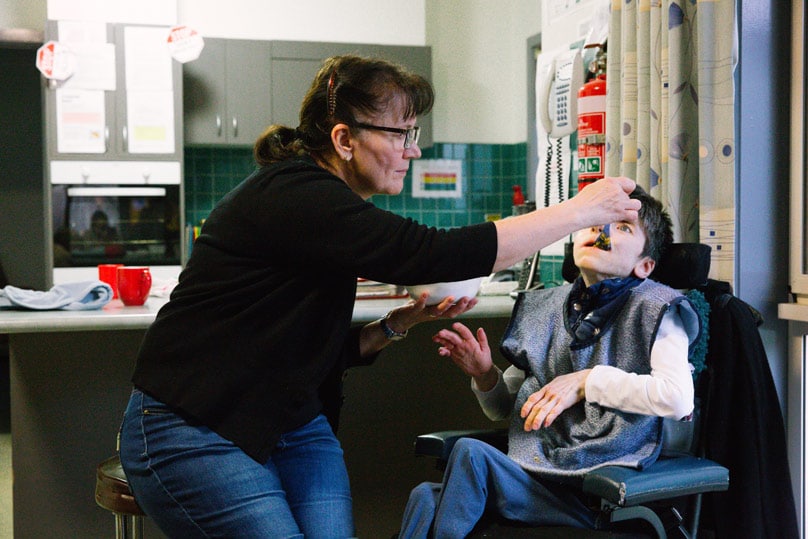
After TV journalist, Andrew Denton, had his famous “conversion” to euthanasia, he described his father’s last moments in harrowing detail. Likening Kit Denton’s final struggle with heart failure to “waterboarding”, he explained watched his father spend “all day, every day fighting for breath.”
“Watching my father Kit die remains the most profoundly shocking experience of my life,” he said in an interview with ABC News.
It is perhaps with someone like Kit Denton in mind that the Voluntary Euthanasia Party, a minor political party started in 2013, argues that “people should not be forced to endure pointless suffering at the end of their lives.”
Similarly, the Greens Party initiative, “Dying with Dignity”, presents euthanasia as the key to a “dignified, pain free death” and Exit International, founded in 1997 by Dr Philip Nitschke, promises that euthanasia will ensure a death that is both “reliable” and “peaceful”.
Euthanasia comes from the Greek word meaning “good death”, but is presented by its advocates as a form of “mercy killing” – the just and noble thing to do for a person suffering terrible and irreversible pain.
However, “pain” is rarely the primary reason people request euthanasia. In fact, it barely makes it into the top five.
In a study appearing in the Journal of the American Medical Association Dr Ezekiel J Emanuel found that “pain does not appear to be the primary factor motivating patients to request euthanasia and [physician assisted suicide].”

While euthanasia is often put forward as an answer to unbearable pain, the primary reason is “fear”.
The “fear of being a burden” consistently ranks on top of the list of reasons people give for requesting euthanasia, well above pain management.
“The media still tends to focus on hard cases,” said Paul Russell, founder and director of HOPE: Preventing Euthanasia and Assisted Suicide, “but to say that it is simply about pain and suffering is just not the case.”
“What we are really talking about is people want to have the same absolute full control over their deaths as they have over their lives.”
And so, he concludes, euthanasia is the domain of the “three W’s” – the White, the Worried and the Well-off.
This explains the extraordinary relaxing of “safeguards” witnessed across the globe in every jurisdiction that has legalised euthanasia and PAS. People have been euthanised for tinnitus, for blindness, for psychological suffering and for fear of entering a nursing home.
In 2013 Belgium’s euthanasia laws extended to children and Holland is currently considering allowing euthanasia for people over 70 who are “tired of life.”

The fear that drives euthanasia is understandable.
Death and suffering are the most mysterious elements of human existence and societies, religions and philosophies have grappled with their meaning for millennia.
It is not surprising that Western atheistic society – whose primary values are pleasure, productivity and autonomy – is particularly ill equipped to answer the meaning of death and suffering.
In some ways, the doctor reaching for the euthanasia needle is not unlike the mob reaching for the pitchfork in Walt Disney’s Beauty and the Beast:
We don’t like / what we don’t / understand
In fact it scares us
And this monster is mysterious at least
Here we come, we’re fifty strong
And fifty Frenchmen can’t be wrong
Let’s kill the Beast. Kill the Beast.
Taking a different approach to end of life care is Justine Schaeffer.
Justine is a nurse, a mother of five, and primary carer to her mother, Pauline Duflou, who was diagnosed with dementia 16 months ago.
She was also the primary carer for her sister, Stephanie Duflou, who has Cornelia de Lange syndrome, a genetic condition resulting in profound mental and physical disabilities, for 17 months. Earlier this year, Stephanie was moved to residential care.
Justine is under no illusions about the struggles of being a full-time carer. “You are never ‘off-duty’,” she said.
“Doing things spontaneously as a family becomes almost impossible,” she said, as Pauline is dependent on Justine for cooking, cleaning, driving and “basically all aspects of daily life.”
In short, it’ s not easy. But life is not always easy. Life is messy and love is sacrifice. This is the point that well-meaning advocates of euthanasia keep missing with their utopic promises of a death that is “painless”, “chosen” and “convenient”.
“Increased dependency on others as we grow older is part and parcel of the human condition,” said Justine.
“The disproportionate value placed on personal autonomy is a refusal to acknowledge this basic human fact,” she said. The promise that life should be, will be, all peaches and cream ‘till death puts enormous pressure on people like Pauline and Stephanie, who have no choice but to feel they are a burden.
“It is incredibly easy for people to feel that they are a burden,” said Justine. She explains how this psychological reality puts an extra pressure on her as a carer for her mother.
“There is the necessity of being patient and cheerful at all times, so that your attitude doesn’t make her feel that she is being a burden,” she said.
Rather than acknowledging that, at some point, we will all be burdensome, euthanasia instead enshrines “people’s feelings of helplessness, depression, and sadness” in law.
Justine is also concerned that the legalisation of euthanasia will have a “devastating impact” on the funding and availability of palliative care.
“Euthanasia is cheaper than good palliative care,” she said. “This will put pressure on governments and providers of health care to save money, and go for the cheaper option … [it will be] the utilitarian approach, rather than the approach which respects human life right up until the end.”
According to Paul Russell, economic rationalism is the “elephant in the room” of the euthanasia debate.
“There is clear economic advantage,” he said.
“It is not often talked about … but it is far cheaper to give someone a lethal injection or to give them a pill than it is to care.
“I am not saying that everyone who argues for euthanasia thinks about that, in the front of their mind, but it certainly thereabouts. With an ageing population there is pressure on us, and older people are imbibing the message all the time that they’re burdens. This is creating a very, very difficult situation,” he said.
Currently, Justine receives help in the form of in-home respite care such as St Mark’s, Umbrella Dementia (Online editor’s note: possible Sydney alternative Central, possible Sydney alternative North) as well as residential respite, but she is concerned about the long-term impacts if euthanasia is legalised.
“Once mum’s condition deteriorates, the pressures for euthanasia will be stronger,” she said. “There will be this new, legal option, which will doubtless be well funded, waved in front of the noses of carers like myself,” she said.
Justine and Pauline are living the very scenario that many euthanasia advocates hold up as “unbearable”.
Lost among the fear-mongering headlines is the great beauty of the little acts of daily love. Justine recalls just one of these:
“One time, a few months ago, Mum was going through a rough spot … her memory loss, and her constant need for reorientation was really getting her down. She came up to me and said, ‘I just feel so useless, sometimes I wish I could just die’. I gave her a hug, and told her it was alright, that I loved her and was here to help. Then we went out for a quiet coffee.”
Euthanasia supporters claim they stand for death with dignity, but perhaps it’s Justine and Stephanie who have hit upon what it really means to have a “good death”.
